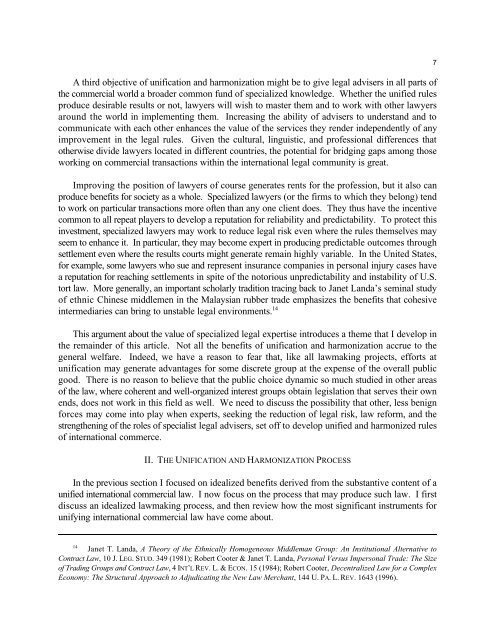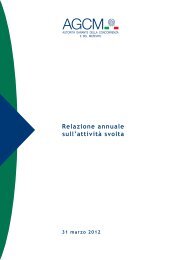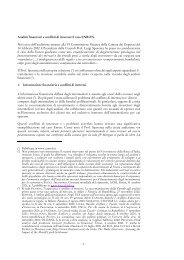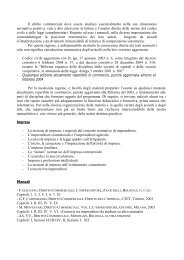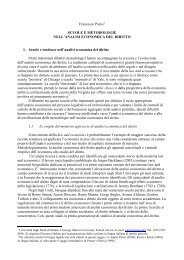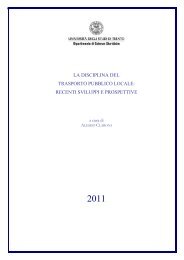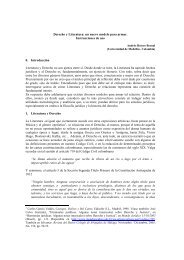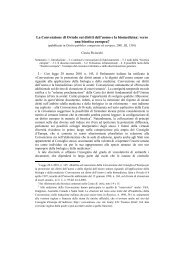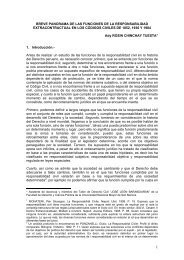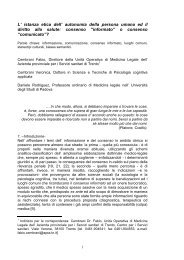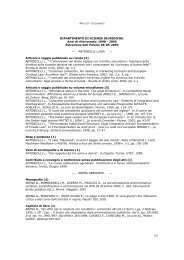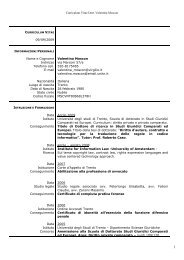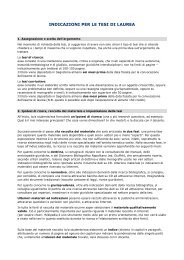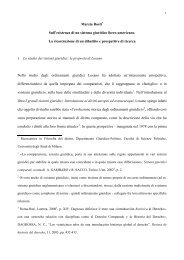The Futility of Unification and Harmonization in International ...
The Futility of Unification and Harmonization in International ...
The Futility of Unification and Harmonization in International ...
You also want an ePaper? Increase the reach of your titles
YUMPU automatically turns print PDFs into web optimized ePapers that Google loves.
A third objective <strong>of</strong> unification <strong>and</strong> harmonization might be to give legal advisers <strong>in</strong> all parts <strong>of</strong>the commercial world a broader common fund <strong>of</strong> specialized knowledge. Whether the unified rulesproduce desirable results or not, lawyers will wish to master them <strong>and</strong> to work with other lawyersaround the world <strong>in</strong> implement<strong>in</strong>g them. Increas<strong>in</strong>g the ability <strong>of</strong> advisers to underst<strong>and</strong> <strong>and</strong> tocommunicate with each other enhances the value <strong>of</strong> the services they render <strong>in</strong>dependently <strong>of</strong> anyimprovement <strong>in</strong> the legal rules. Given the cultural, l<strong>in</strong>guistic, <strong>and</strong> pr<strong>of</strong>essional differences thatotherwise divide lawyers located <strong>in</strong> different countries, the potential for bridg<strong>in</strong>g gaps among thosework<strong>in</strong>g on commercial transactions with<strong>in</strong> the <strong>in</strong>ternational legal community is great.Improv<strong>in</strong>g the position <strong>of</strong> lawyers <strong>of</strong> course generates rents for the pr<strong>of</strong>ession, but it also canproduce benefits for society as a whole. Specialized lawyers (or the firms to which they belong) tendto work on particular transactions more <strong>of</strong>ten than any one client does. <strong>The</strong>y thus have the <strong>in</strong>centivecommon to all repeat players to develop a reputation for reliability <strong>and</strong> predictability. To protect this<strong>in</strong>vestment, specialized lawyers may work to reduce legal risk even where the rules themselves mayseem to enhance it. In particular, they may become expert <strong>in</strong> produc<strong>in</strong>g predictable outcomes throughsettlement even where the results courts might generate rema<strong>in</strong> highly variable. In the United States,for example, some lawyers who sue <strong>and</strong> represent <strong>in</strong>surance companies <strong>in</strong> personal <strong>in</strong>jury cases havea reputation for reach<strong>in</strong>g settlements <strong>in</strong> spite <strong>of</strong> the notorious unpredictability <strong>and</strong> <strong>in</strong>stability <strong>of</strong> U.S.tort law. More generally, an important scholarly tradition trac<strong>in</strong>g back to Janet L<strong>and</strong>a’s sem<strong>in</strong>al study<strong>of</strong> ethnic Ch<strong>in</strong>ese middlemen <strong>in</strong> the Malaysian rubber trade emphasizes the benefits that cohesive<strong>in</strong>termediaries can br<strong>in</strong>g to unstable legal environments. 14This argument about the value <strong>of</strong> specialized legal expertise <strong>in</strong>troduces a theme that I develop <strong>in</strong>the rema<strong>in</strong>der <strong>of</strong> this article. Not all the benefits <strong>of</strong> unification <strong>and</strong> harmonization accrue to thegeneral welfare. Indeed, we have a reason to fear that, like all lawmak<strong>in</strong>g projects, efforts atunification may generate advantages for some discrete group at the expense <strong>of</strong> the overall publicgood. <strong>The</strong>re is no reason to believe that the public choice dynamic so much studied <strong>in</strong> other areas<strong>of</strong> the law, where coherent <strong>and</strong> well-organized <strong>in</strong>terest groups obta<strong>in</strong> legislation that serves their ownends, does not work <strong>in</strong> this field as well. We need to discuss the possibility that other, less benignforces may come <strong>in</strong>to play when experts, seek<strong>in</strong>g the reduction <strong>of</strong> legal risk, law reform, <strong>and</strong> thestrengthen<strong>in</strong>g <strong>of</strong> the roles <strong>of</strong> specialist legal advisers, set <strong>of</strong>f to develop unified <strong>and</strong> harmonized rules<strong>of</strong> <strong>in</strong>ternational commerce.7II. THE UNIFICATION AND HARMONIZATION PROCESSIn the previous section I focused on idealized benefits derived from the substantive content <strong>of</strong> aunified <strong>in</strong>ternational commercial law. I now focus on the process that may produce such law. I firstdiscuss an idealized lawmak<strong>in</strong>g process, <strong>and</strong> then review how the most significant <strong>in</strong>struments forunify<strong>in</strong>g <strong>in</strong>ternational commercial law have come about.14Janet T. L<strong>and</strong>a, A <strong>The</strong>ory <strong>of</strong> the Ethnically Homogeneous Middleman Group: An Institutional Alternative toContract Law, 10 J. LEG. STUD. 349 (1981); Robert Cooter & Janet T. L<strong>and</strong>a, Personal Versus Impersonal Trade: <strong>The</strong> Size<strong>of</strong> Trad<strong>in</strong>g Groups <strong>and</strong> Contract Law, 4 INT’L REV. L. & ECON. 15 (1984); Robert Cooter, Decentralized Law for a ComplexEconomy: <strong>The</strong> Structural Approach to Adjudicat<strong>in</strong>g the New Law Merchant, 144 U. PA. L. REV. 1643 (1996).


